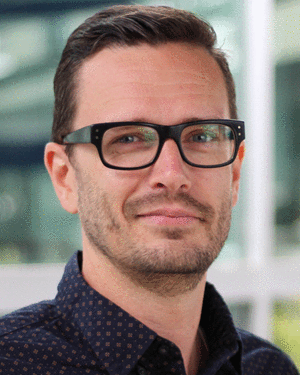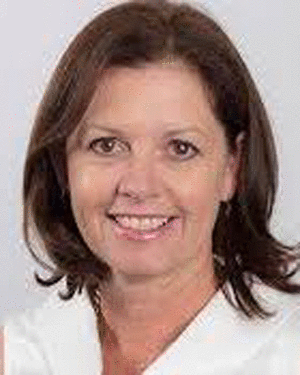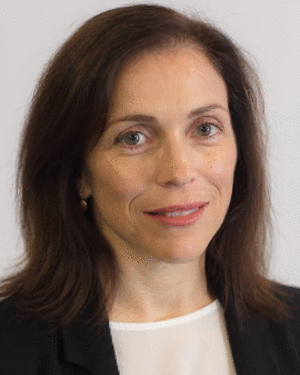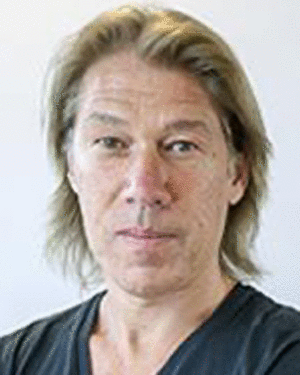Abstract:
This article presents a novel digital method of capturing finger-based gestures on touchscreen devices for the purpose of exploring tracing gestures in educational resear...Show MoreMetadata
Abstract:
This article presents a novel digital method of capturing finger-based gestures on touchscreen devices for the purpose of exploring tracing gestures in educational research. Given that tracing has been found to support cognition, learning, and problem solving in educational settings, data related to the performance of these gestures are increasingly of interest to researchers. Most educational research methods exploring the use of hand gestures rely on in-person data collection, whether through direct observation or video recording of participants’ behavior for later analysis. These methods, while effective for observing gross movements, may not provide researchers with detailed insights into how learners interact with learning materials. Using custom tools to record touchscreen engagement on tablet computing devices can address this limitation while also providing the means to visually represent touch-based interactions with these devices. Geometry Touch is an iPad app developed and tested by the primary author as a part of a pilot study. The research study, theoretically grounded in cognitive load theory (CLT), demonstrated that Geometry Touch could efficiently collect data on touchscreen interactions while also providing potential avenues to quantify touchscreen interactions through computational means. The purpose of this article is to report on the development and testing of this app while providing an explanation of how it was used as a method of data collection by leveraging touchscreen technology. The article concludes by discussing how this digital method of capturing movement can provide further insight into how finger-based gestures can influence learning and, as such, could increase the reach of gesture-based research.
Published in: IEEE Transactions on Learning Technologies ( Volume: 17)
Funding Agency:

School of Education, University of New England, Armidale, NSW, Australia
Stoo Sepp received the Ph.D. degree in education from the University of Wollongong, Wollongong, NSW, Australia, in 2020.
He is a Lecturer in learning technologies with the University of New England, Armidale, NSW, Australia. His research focuses on exploring cognition and human movement in multimedia learning environments in online and classroom contexts. His current projects investigate how pointing and tracing may affect...Show More
Stoo Sepp received the Ph.D. degree in education from the University of Wollongong, Wollongong, NSW, Australia, in 2020.
He is a Lecturer in learning technologies with the University of New England, Armidale, NSW, Australia. His research focuses on exploring cognition and human movement in multimedia learning environments in online and classroom contexts. His current projects investigate how pointing and tracing may affect...View more

School of Education/Early Start, University of Wollongong, Wollongong, NSW, Australia
Sharon Tindall-Ford received the Ph.D. degree in educational psychology from the University of New South Wales, Sydney, NSW, Australia, in 1997.
She is an Associate Professor of education with the University of Wollongong, Wollongong, NSW, Australia. Her research has focused on making a positive change for schools, school leaders, and teachers. Her work in cognitive load theory (CLT) has investigated how CLT effects of mod...Show More
Sharon Tindall-Ford received the Ph.D. degree in educational psychology from the University of New South Wales, Sydney, NSW, Australia, in 1997.
She is an Associate Professor of education with the University of Wollongong, Wollongong, NSW, Australia. Her research has focused on making a positive change for schools, school leaders, and teachers. Her work in cognitive load theory (CLT) has investigated how CLT effects of mod...View more

School of Education/Early Start, University of Wollongong, Wollongong, NSW, Australia
Shirley Agostinho received the Ph.D. degree in educational/instructional technology from the University of Wollongong, Wollongong, NSW, Australia, in 2000.
She is a Professor with the School of Education, Faculty of the Arts, Social Sciences and Humanities, University of Wollongong. Her academic career focuses on investigating and designing effective learning environments using innovative technology. Her research examines ...Show More
Shirley Agostinho received the Ph.D. degree in educational/instructional technology from the University of Wollongong, Wollongong, NSW, Australia, in 2000.
She is a Professor with the School of Education, Faculty of the Arts, Social Sciences and Humanities, University of Wollongong. Her academic career focuses on investigating and designing effective learning environments using innovative technology. Her research examines ...View more

School of Education/Early Start, University of Wollongong, Wollongong, NSW, Australia
Department of Psychology, Education, and Child Studies, Erasmus University Rotterdam, Rotterdam, The Netherlands
Fred Paas received the Ph.D. degree in educational/instructional technology from the University of Twente, Enschede, The Netherlands, in 1993.
He is a Professor of educational psychology with the Department of Psychology, Education and Child Studies, Erasmus University Rotterdam, Rotterdam, The Netherlands. He is also a Professorial Fellow with the School of Education/Early Start, University of Wollongong, Wollongong, NSW,...Show More
Fred Paas received the Ph.D. degree in educational/instructional technology from the University of Twente, Enschede, The Netherlands, in 1993.
He is a Professor of educational psychology with the Department of Psychology, Education and Child Studies, Erasmus University Rotterdam, Rotterdam, The Netherlands. He is also a Professorial Fellow with the School of Education/Early Start, University of Wollongong, Wollongong, NSW,...View more

School of Education, University of New England, Armidale, NSW, Australia
Stoo Sepp received the Ph.D. degree in education from the University of Wollongong, Wollongong, NSW, Australia, in 2020.
He is a Lecturer in learning technologies with the University of New England, Armidale, NSW, Australia. His research focuses on exploring cognition and human movement in multimedia learning environments in online and classroom contexts. His current projects investigate how pointing and tracing may affect learning in 2-D and 3-D digital environments and works to develop novel technologies and methods to allow researchers to capitalize on the affordances of touch-based and gesture-based devices. He has been awarded a Sage Concept Grant for work related to iPad gesture capture and is working to extend this work to VR/AR technologies.
Stoo Sepp received the Ph.D. degree in education from the University of Wollongong, Wollongong, NSW, Australia, in 2020.
He is a Lecturer in learning technologies with the University of New England, Armidale, NSW, Australia. His research focuses on exploring cognition and human movement in multimedia learning environments in online and classroom contexts. His current projects investigate how pointing and tracing may affect learning in 2-D and 3-D digital environments and works to develop novel technologies and methods to allow researchers to capitalize on the affordances of touch-based and gesture-based devices. He has been awarded a Sage Concept Grant for work related to iPad gesture capture and is working to extend this work to VR/AR technologies.View more

School of Education/Early Start, University of Wollongong, Wollongong, NSW, Australia
Sharon Tindall-Ford received the Ph.D. degree in educational psychology from the University of New South Wales, Sydney, NSW, Australia, in 1997.
She is an Associate Professor of education with the University of Wollongong, Wollongong, NSW, Australia. Her research has focused on making a positive change for schools, school leaders, and teachers. Her work in cognitive load theory (CLT) has investigated how CLT effects of modality, imagination, and self-management can inform teachers’ instructional design to support student learning. Her more recent research has focused on two key inter-related areas: educational policy and school leadership with a specific focus on middle leader professional learning and development.
Sharon Tindall-Ford received the Ph.D. degree in educational psychology from the University of New South Wales, Sydney, NSW, Australia, in 1997.
She is an Associate Professor of education with the University of Wollongong, Wollongong, NSW, Australia. Her research has focused on making a positive change for schools, school leaders, and teachers. Her work in cognitive load theory (CLT) has investigated how CLT effects of modality, imagination, and self-management can inform teachers’ instructional design to support student learning. Her more recent research has focused on two key inter-related areas: educational policy and school leadership with a specific focus on middle leader professional learning and development.View more

School of Education/Early Start, University of Wollongong, Wollongong, NSW, Australia
Shirley Agostinho received the Ph.D. degree in educational/instructional technology from the University of Wollongong, Wollongong, NSW, Australia, in 2000.
She is a Professor with the School of Education, Faculty of the Arts, Social Sciences and Humanities, University of Wollongong. Her academic career focuses on investigating and designing effective learning environments using innovative technology. Her research examines learning with technology and the professional practice of teachers. With a research program of 20+ years, her work is advancing theory and making a practical contribution about how learners, be they students, teachers, and other working professionals, can better understand their own practices to support their own learning.
Shirley Agostinho received the Ph.D. degree in educational/instructional technology from the University of Wollongong, Wollongong, NSW, Australia, in 2000.
She is a Professor with the School of Education, Faculty of the Arts, Social Sciences and Humanities, University of Wollongong. Her academic career focuses on investigating and designing effective learning environments using innovative technology. Her research examines learning with technology and the professional practice of teachers. With a research program of 20+ years, her work is advancing theory and making a practical contribution about how learners, be they students, teachers, and other working professionals, can better understand their own practices to support their own learning.View more

School of Education/Early Start, University of Wollongong, Wollongong, NSW, Australia
Department of Psychology, Education, and Child Studies, Erasmus University Rotterdam, Rotterdam, The Netherlands
Fred Paas received the Ph.D. degree in educational/instructional technology from the University of Twente, Enschede, The Netherlands, in 1993.
He is a Professor of educational psychology with the Department of Psychology, Education and Child Studies, Erasmus University Rotterdam, Rotterdam, The Netherlands. He is also a Professorial Fellow with the School of Education/Early Start, University of Wollongong, Wollongong, NSW, Australia. In his research and teaching, he uses cognitive load theory to investigate how contemporary, multidisciplinary scientific knowledge about the human cognitive and physical system can be applied to design effective and efficient learning environments. He has authored or coauthored more than 300 articles and book chapters.
Dr. Paas has been the Editor-in-Chief for the Journal Educational Psychology Review, since 2015, and he is also on the editorial board of several other journals, such as the Journal of Educational Psychology, Educational Technology Research and Development, and the International Journal of Environmental Research and Public Health. He is a fellow of the American Educational Research Association.
Fred Paas received the Ph.D. degree in educational/instructional technology from the University of Twente, Enschede, The Netherlands, in 1993.
He is a Professor of educational psychology with the Department of Psychology, Education and Child Studies, Erasmus University Rotterdam, Rotterdam, The Netherlands. He is also a Professorial Fellow with the School of Education/Early Start, University of Wollongong, Wollongong, NSW, Australia. In his research and teaching, he uses cognitive load theory to investigate how contemporary, multidisciplinary scientific knowledge about the human cognitive and physical system can be applied to design effective and efficient learning environments. He has authored or coauthored more than 300 articles and book chapters.
Dr. Paas has been the Editor-in-Chief for the Journal Educational Psychology Review, since 2015, and he is also on the editorial board of several other journals, such as the Journal of Educational Psychology, Educational Technology Research and Development, and the International Journal of Environmental Research and Public Health. He is a fellow of the American Educational Research Association.View more


